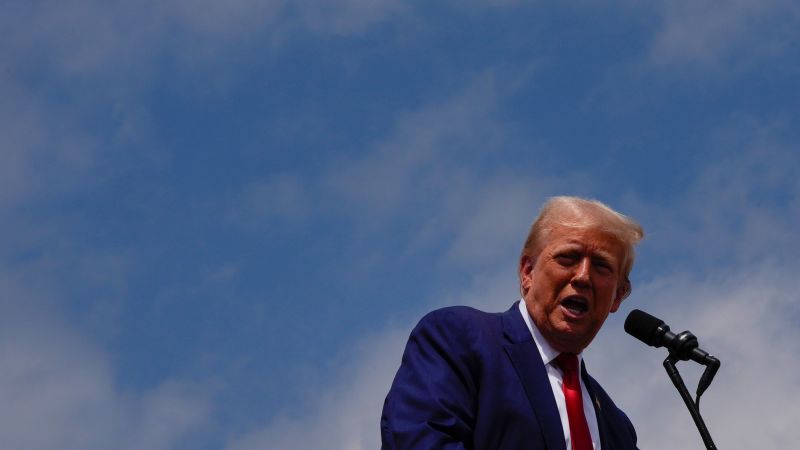Former President Donald Trump made a false claim that Vice President Kamala Harris met with Russian President Vladimir Putin just days before Russia invaded Ukraine in 2022. Trump stated this during a speech in North Carolina, where he accused Harris of meeting with Putin and failing to prevent the attack. However, the claim is inaccurate as Harris has never met with Putin. In reality, she met with US allies, including Ukrainian President Volodymyr Zelensky, at the Munich Security Conference in the days leading up to the invasion. Putin did not attend the conference, and a Kremlin spokesperson confirmed that there had been no contact between Putin and Harris.
The Biden administration was actively working to deter an invasion of Ukraine at the time of Harris’ trip to the conference in Germany. President Joe Biden and other top officials indicated that they believed Putin was already moving towards invading Ukraine. Ahead of the Munich conference, a senior administration official stated that Harris had three key objectives, which included focusing on the situation on the ground, aligning with partners, and sending a clear message to Russia. The conference took place from February 18 to February 20, and Russia began its invasion of Ukraine on February 24, 2022, indicating that Harris’s meeting with US allies occurred before the attack, not with Putin.
The false claim made by Trump raises questions about misinformation spread by prominent figures and the importance of fact-checking statements made by political leaders. This incident highlights the need for accurate information and accountability in public discourse, especially when discussing international relations and conflicts. While political rhetoric is common, spreading false information can have serious consequences, particularly when it comes to sensitive issues like Russia’s invasion of Ukraine. Inaccurate claims can undermine trust in political leaders and distort public understanding of complex events.
The accusation against Harris underscores the contentious nature of US politics and the potential impact of misinformation on public opinion. In a highly polarized environment, false claims can further divide the populace and contribute to a lack of trust in institutions. It is essential for media outlets and fact-checkers to debunk misleading statements and hold public figures accountable for their words. The incident also highlights the need for critical thinking and vigilance among the public to discern accurate information from falsehoods.
The timing of Harris’s meeting with US allies at the Munich Security Conference and the subsequent invasion of Ukraine by Russia illustrate the challenges of international diplomacy and conflict prevention. Despite efforts by the Biden administration to deter Putin from invading Ukraine, the attack still occurred, raising questions about the effectiveness of diplomatic measures in preventing aggression. The situation in Ukraine remains a volatile and evolving crisis, with ongoing diplomatic efforts and military responses shaping the outcome. Understanding the sequence of events leading up to the invasion is crucial for evaluating the strategies employed by international leaders in addressing the conflict.
In conclusion, the false claim made by Donald Trump regarding Kamala Harris’s meeting with Putin before the invasion of Ukraine serves as a reminder of the importance of fact-checking and accuracy in public discourse. The incident sheds light on the challenges of addressing misinformation in political rhetoric and the implications of false statements on public understanding. Moving forward, it is essential for political leaders, the media, and the public to prioritize truth and accountability in discussions of critical issues such as international conflicts. By upholding the standards of accuracy and transparency, society can work towards a more informed and responsible approach to public discourse.


